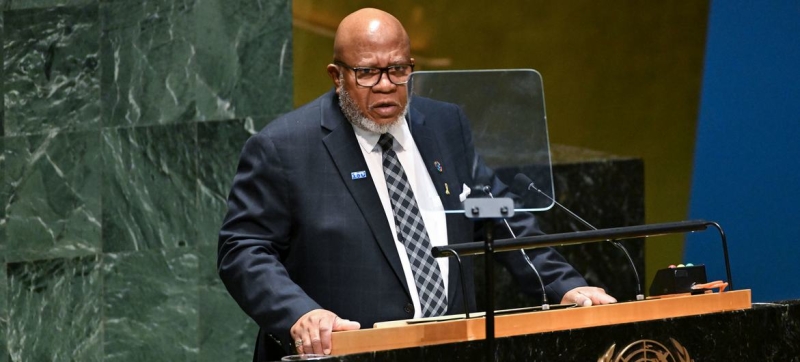
Chairman of the 78th session of the UN General Assembly, Dennis Francis. Head of the General Assembly: excessive use of vetoes hinders the UN’s ability to respond quickly to crisis situations Peace and security
UN member states are discussing on Tuesday the issue of the veto power and how meetings of the General Assembly under the “veto initiative” can best serve the purposes of resolution 76/262.
Almost two years ago, delegates to the 76th session of the UN General Assembly adopted this resolution, according to which the Assembly meets within 10 days after one of the permanent members The Security Council exercised its veto power. Debates are held to discuss the situation and hear explanations of the reasons for the veto.
The President of the General Assembly, Dennis Francis, emphasized the important role of this mechanism to improve transparency, accountability and cooperation between the Security Council and the GA. He said that despite their different mandates, UN bodies must work together to maintain global peace and security.
Francis noted that since last year’s debate on the issue, Security Council members blocked the adoption of eight resolutions and one amendment. He said the unrestricted use of the veto was hampering the UN’s ability to respond quickly to peace and security crises around the planet, including in Gaza, Ukraine, Syria, Mali and North Korea. “Paralysis” in the Security Council and the lack of consensus among its members are undermining trust in the UN, Francis added.
He called on states, especially Security Council members, to use the General Assembly debate to overcome differences and finding effective solutions, in particular with greater participation of the Assembly. Francis expressed confidence in the “collective wisdom and creativity” of the 193 UN member states, all of which are represented in the General Assembly, to achieve common goals for peace and security.
